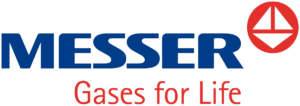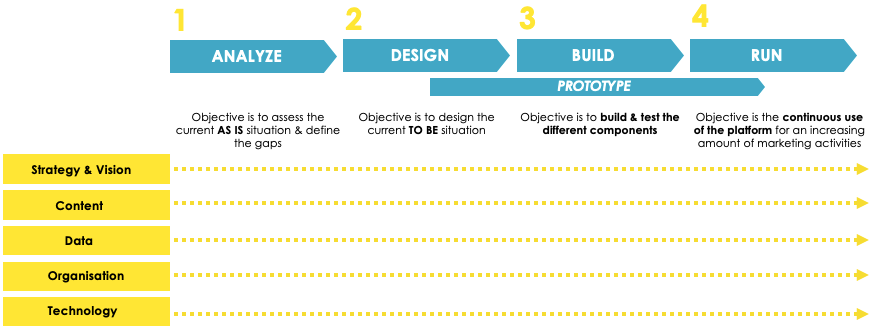
Client Stories
How Messer Group generated 3 times more leads thanks to Marketing Automation
Messer Group is a producer and distributor of industrial gases with a complex distribution model which combines both direct deliveries and deliveries through a depot network. The chemical company has always been very sales oriented, but in recent years embraced the idea that marketing could be a vital support for sales, especially when it comes to the generation, nurturing and qualification of leads. In June 2017, they contacted us to help them with the implementation of Marketing Automation with the ultimate aim of going from 90% to 50% sales dependency by 2020/2025.

Approach

Phase 1 – Analyze
We started the analyze phase with an online survey, in depth interviews and a digital audit to get a better understanding of the level of Marketing Automation maturity, the focus areas for the ‘to-be’ situation and quick wins. But most importantly, we made sure that all stakeholders were aware of the project and we set up a prototype in Belgium to test our “free welding demo” campaign.
Phase 2 – Design
Following the validation of the strategy by the steerco, we defined and described a key persona & customer journey per country. We then aligned on the actions for the Minimum Viable Product (MVP) setup and started designing all customer interaction flows with their (functional & technical) requirements. At a data & technology workshop, we decided not to touch the existing infrastructure but to build the Marketing Automation tool on this infrastructure and to connect it with the digital tools. And we defined where to store the data (‘golden record’) and mapped the data. Finally, we had all information to launch the vendor selection (RFP for software & IT implementation partner).
Phase 3 – Build
We kicked off the implementation of Salesforce Pardot with a detailed description of the customer process and the interdependencies across all systems. This CRM alignment & data field mapping workshop made sure we had a uniform meaning and definition of fields in Marketing Automation & CRM and visually showed how the systems are connected and how the data flows from one system to another. We then built all landing pages, forms, emails, drip programs, etc. in Salesforce Pardot. Before the go-live, we did a roadshow in all countries to present the benefits for sales, shared out a manual with guidelines and set up a demo and an online training course.
Phase 4 – Run
Obviously, things did not stop at that. We identified enhancements for Phase 1 and additional actions for Phase 2. And we started to set up campaigns to drive added quality traffic to our landing pages. In tandem with our digital experts at Upthrust we defined a long list of traffic generation initiatives and mapped them onto an “impact-effort” matrix to start with the quick wins first. We set up targeted campaigns resulting in more qualified leads through Facebook (video, image, interest, lookalikes, retargeting), Google Ads (competitor brands, general sector & specific gas keywords) and LinkedIn (sponsored content / text ads, sector & function targeting).
Leaving our fingerprint behind
Marketing Automation is a means to generate more sales, not an initiative to automate processes as such. The results below after adding campaign management for one single landing page for just a one-month period speak for themselves: 3 times more leads, a higher hit rate (the percentage of successful sales went from 30% to almost 50%) and a reduction of the cost per lead (from €125 to just €70).

Insights and learnings from the project
- It’s key to start small, learn quickly and not lose sight of the ultimate vision: “think big, start small, scale fast“. The countries for the initial scope were Benelux, France and Spain. We scaled very quickly after the launch of the MVP to the Netherlands.
- Do not step into the pitfall of wanting to do too much too quickly at the same time. We decided with the sales managers to focus on the sectors offering the highest (potential) revenues and restricted the number of actions to 8.
- Be realistic about the ambitions and tactical benefits that Marketing Automation can bring (on the short term). We co-defined what Marketing Automation means for Messer Group. We validated this strategy at the steerco and asked every manager for a signature to ensure their commitment.
- In an RFP process, the choice of the technical implementer is as important as the tool.
- Create common ground with all stakeholders. We involved all departments in all countries from week 1. We also visited all countries to align with the core teams and sales before go live.